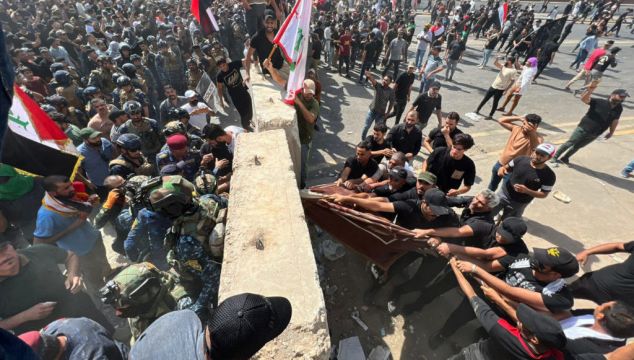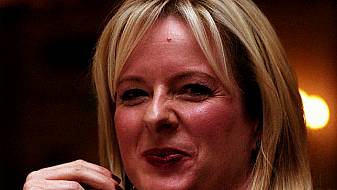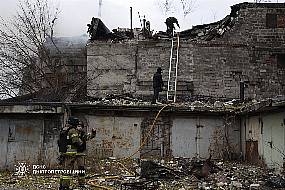Hundreds of followers of an influential Shiite cleric have breached parliament for a second time this week to protest against government formation efforts led by Iran-backed groups.
Iraqi security forces initially used tear gas and sound bombs to try to repel the demonstrators and caused several injuries witnessed by journalists for The Associated Press.
The Health Ministry said it had received 60 injured patients.
An expected parliament session did not take place and there were no lawmakers in the hall.

Demonstrators then occupied the parliament floor and raised the Iraqi flag and portraits of Mr al-Sadr.
It was the second time in the space of three days that the cleric has ordered his followers to stage a sit-in in the Green Zone.
The protests are a pressure tactic used by the cleric to derail government formation efforts led by his political rivals in the Coalition Framework, an alliance of Shiite parties backed by Iran.
Iraq’s caretaker prime minister Mustafa al-Kadhimi directed security forces to protect demonstrators and asked them to keep their protest peaceful, according to a statement.
Inside the parliament building, the actions of the security forces grew less intense and many were seen sitting and talking to demonstrators.

“We came today to remove the corrupt political class and prevent them from holding a parliament session, and to prevent the framework from forming a government,” said Raad Thabet, 41. “We responded to al-Sadr’s call. We will go to the Green (Zone). No matter the cost.”
The protesters are followers of influential Shiite cleric Muqtada al-Sadr, who called for the demonstrations against the formation of the next government by Iran-backed political groups.
Nr Al-Sadr’s party exited government formation talks in June, giving his rivals in the Coordination Framework alliance the majority they needed to move forward with the process.
Many protesters wore black to mark the days leading to Ashura, which commemorates the death of Imam Hussein, the grandson of the Prophet Mohamed and one of Shiite Islam’s most important figures.
Mr Al-Sadr’s messaging to his followers has used the important day in Shiite Islam to kindle protests.
On Wednesday, hundreds of his followers stormed the parliament building after the Framework alliance named Mohammed al-Sudani as their nominee for the premiership and signalled their readiness to form a government despite his threats.







